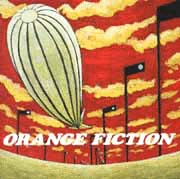Mr Whitby's presentation was inspiring for the vision that it communicated in relation to delivering education for the future. There is much written about future learning, and new frameworks to embrace, and all are critical to the shape of learning and how we should be developing it. I have been sharing with you some of these ideas in our network meetings, as well as exploring them in more detail on this blog and on my own professional learning blog.
Mr Whitby reminds us that learning and teaching is a:
- relational process
- collaborative and contextual processes
- demanding and intellectually rigorous
- time and space non-dependent
I was greatly encouraged to hear our Executive Director throwing out the challenge to us all. In fact, it is a real buzz to be working in an education environment that recognises the future directions of the lives of our digitally native students, and which encourages exploration of the possibilities.
In response to requests from TLs at the last round of network meetings, and to help further the knowledge of social networking and Web 2.0, I will be organising further inservices on Blogging, Social Bookmarking, and other Social network tools such as Flickr, RSS News Readers etc. If you missed the network meetings, but have a special request - just let me know.
Form Follows Function - this slide from the presentation positions education with a different set of questions....
What if....
- students weren't grouped in uniformly sized 'classes'?
- students weren't expected to move from one room to another almost identical to the last. What might schools look like?
- multidisciplinary teams of professionals took corporate responsibility for a cohort of students?
- students owned every hour?
- study spaces were designed and furnished for collaborative as well as individual work?
- older students were not always required to be physically present in order to be "attending"?
- if ICT infrastrucuture and portable devices were ubiquitous?




